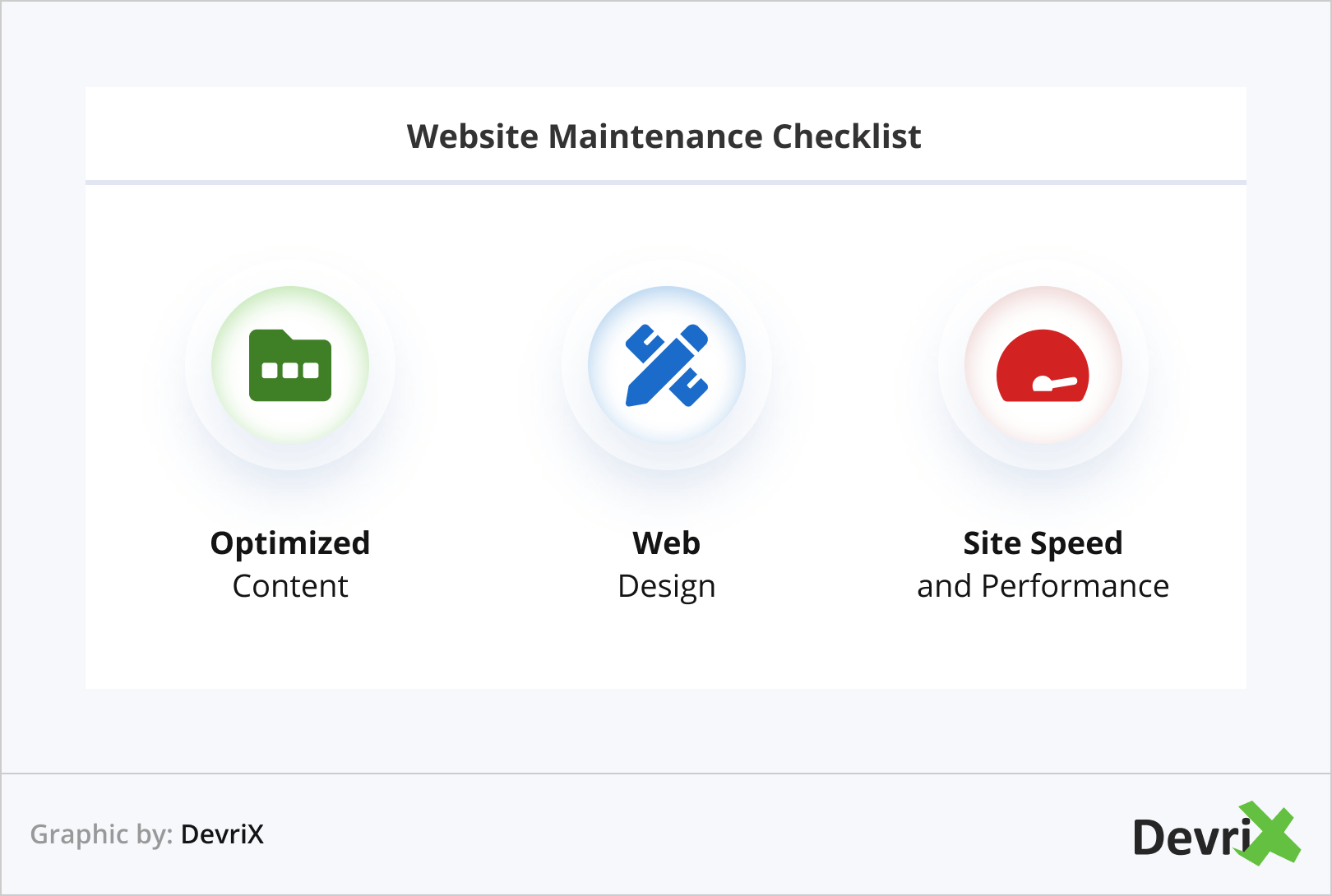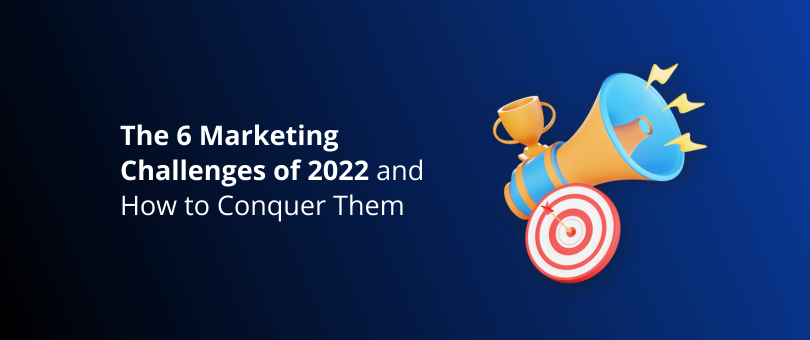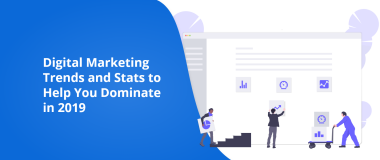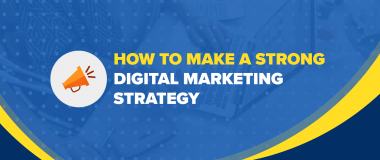Every year brings its own trials and opportunities in the marketing world, and 2022 will not be an exception. As marketing trends come and go, and as businesses use various marketing techniques to attract the customer base, one has to contemplate on how to navigate in the ever-changing marketing world.
This is why we took a deeper look at the marketing crystal ball to see what comes next for businesses in terms of marketing for 2022 and beyond!
1. Reinventing Through Digital Transformation

With each new year, a new peak of technology development comes our way. And each year, our lives are gradually transformed because of it. Just think about it!
For instance, in 2006, Facebook just started to rise outside university campuses, and Twitter was barely known to the general public. And 16 years since then, we can’t live without social media, and we must have each app on our smartphones!
This digitalization alone means you can’t rely on traditional marketing tactics, especially in 2022 and above, and new practices must be implemented if you want to capture a larger portion of your target market.
Today, marketing is one of the most technology-dependent processes in business. According to Statista, the global martech market’s value was estimated at nearly 345 billion U.S. dollars in 2021.
In addition to the development of WordPress as a CMS, new CRM platforms, and marketing automation software, there are also new and improved social media marketing tools, apps, and content marketing development softwares. The effect of using these softwares is felt across each industry. For example, banking is continuously transformed by new and improved payment systems, and B2B companies can’t function without a CRM or Salesforce integration and social media marketing.
There is also a lot of progress in collecting, vetting and decoding data that is generated in each marketplace, as well as in the expansion of digital media advertising for reaching target customers. While in a different time, CMOs had to struggle to find at least some quantifiable portion of data for target customers, now, they’re struggling to absorb the data to get relevant feedback about the marketplace.
Fortunately, the data marketing challenges can be easily overcome and interpreted with the business technology available today. For example, consider only the capacity for marketing of technology such as IBM’s Watson, that can perfectly comprehend and interpret human language and analyze unorganized data.
The marketing reinvention journey will continue in 2022 and beyond, and the ability of companies to respond to this challenge will determine their marketing success this year and beyond.
2. Enhancing Customer Experience
In marketing, the customers are at the center of everything you do. Keep in mind that the expectations of customers have risen now more than ever! As claimed by Accenture, only 7% of businesses think that they exceed their customer experience expectations.
The continuous customer experience improvement can keep your business on point and competitive in the future. As a matter of fact, 25% of brands are expected to have significant advances in the quality of their customer experience in the year 2022.
Technologies for improving customer experiences and delivering quality content are at our palms, and one of the most powerful concepts of today is called omni channel marketing. Today, it’s all about creating consistency for the consumers across all channels. With that, customers can switch between channels and start the customer journey when they want to.
The growing number of marketplaces and languages is challenging, and if you want to operate globally, this year, you need not only to be ambitious with your marketing efforts, but you also need to have a sound and appropriate customer experience strategy.
3. Next-Level Personalization

Personalization in marketing still matters, because when you offer people something that is tailored for them, they’re more likely to pay attention to it. With online users constantly holding divided attention, you must offer content that can engage people within seconds. Again, this is where personalization steps in.
Based on research, personalizing your content has the power to reduce acquisition costs by 50%, and 78% percent of U.S. internet users have increased intent to purchase when seeing personally relevant content.
According to Gartner, in Digital Commerce, the usage of AI for data collection and interpretation will achieve at least a 25% improvement in customer satisfaction, revenue or cost reduction.
Other examples of AI’s impact in data analysis for digital commerce range from product recommendation, content personalization, detection, and price optimization (using price optimization algorithms to personalize prices for different customers).
Without proper data, it will be extremely difficult for you to implement personalized experiences across all channels. In 2022, you’re going to need a deeper data set and a range of analyticsl tools if you want to understand more about your segmented audiences, especially with the rising privacy concerns of the consumers.
Here are some additional voice search numbers for you. Amazon Alexa/ Echocommand the market with a 70 percent market share, followed by Google home with 25% and Apple HomePod with 5%!
As more users buy voice devices into their homes, there will be even more innovations in users’ search habits:
- 71% of searches in the US are voice searches.
- Google’s speech recognition and accuracy (English) is now 95 percent.
- Google Home, now rebranded as Nest, is answering 81% of the queries correctly, even pulling a few funny jokes.
- 52% of mobile voice searchers use voice assistant tech several times a day.
If you really want to excel in marketing personalization, you must utilize the latest trends and technologies available to you:
Voice Technology
According to the Smart Audio Report, 21% of U.S. adults — 53M people — own smart speakers. Out of that 21%, up to 69% of smart speaker owners use their devices daily.
Without a doubt, voice search technology is on a continual rise. While mobile experience matters, you need to focus on making it easier for the consumers to search and buy your products via voice assistants and smart speakers.
Personalizing Through AI
In 2022, marketing challenges will continue to mount as companies increasingly adopt artificial intelligence (AI) and machine learning (ML). While these technologies offer a number of benefits – such as the ability to personalize customer experiences – they also bring with them a host of new challenges.
As more organizations turn to AI and ML for website management, marketing teams will need to find innovative ways to keep up with the pace of change. According to The CMO Survey, 56.5% of responding AI users were using it for content personalization. With each improvement in algorithms, and with more data to feed the algorithms, customers’ expectations for personalized marketing offers have risen.
Don’t Forget Your Content
With the big pool of data available, that includes page visit tracking, purchasing history, and consumer behaviors, personalizing your content has never been easier. 51% of marketers consider personalization the number one factor that improves customer relationships.
4. Integrating AI

Speaking of AI, currently, we’re in the AI integration battlefield, and Google, Amazon, Facebook, Uber, Amazon, Apple and Microsoft are battling to win the artificial intelligence war. These companies are winners. And if you want to set the example in your industry and lead the way, integrating AI into your digital marketing strategy is inevitable!
With the amount of data sets on potential customers on the rise, technologies such as machine learning, deep learning, and natural language processing will be vital to make a precise data-wise decision about your customers.
According to our CEO and Chief WordPress Architect, Mario Peshev, this is how you’ll prepare for the AI and automation revolution:
“Management has to invest heavily in areas that AI doesn’t excel at, such as critical thinking, empathy, customer satisfaction and creativity. Machines are only meant to replace tedious, repetitive tasks, whereas a personalized approach shines on its own.”
If you want to revolutionize your digital marketing through AI, here are the implementations that you need to consider:
- Creating Content: Smart apps such as Wordsmith or Quill are frequently utilized by publishers like Forbes for creating the latest news articles. With templates and forms to enter data and keywords, these tools can create unique content that is similar to the content of a human writer.
- Content Curation: If creating content is easy for AI, curation is even easier. Through content curation with AI, you can offer more interesting content to your customers and connect with them better in the process. They will spend more time on your website, and see more of what you offer as a result.
- Email Marketing: You can use AI to personalize your email marketing campaigns based on data and user behavior. There are helpful tools such as Phrasee and Persado that can generate the perfect subject lines and copy, and surpass the effectiveness of human-written email messages with ease.
- Advertising: Facebook and Google’s ad platforms already use machine learning to find out what the users are prone to and place an advertisement that is related to those interests.Google Ads already an automatized auction-like software that lets advertisers know the CPC for certain keyword upfront. There are also other new platforms such as Adext, an audience management system that utilizes deep machine learning to automate and optimize your ads for greater audience success on Google and Facebook.
- Chatbots: Automating responses to customers is much easier with chatbots. They can serve them 24/7, and collect data in the process. And they won’t get an attitude as an overwhelmed customer service clerk does. Chatbots can also answer several user requests at the same time, something that is virtually impossible for a human customer service employee.
5. GDPR and Privacy Regulations

2018 was the year of some of the biggest changes and innovation when it comes to web privacy regulations with the passing of EU’s General Data Protection Regulation (GDPR) in May.
The GDPR (General Data Protection Regulation) is a new EU Regulation that is a substitute for the 1995 EU Data Protection Directive (DPD) in order to improve the protection of the personal data of EU citizens and increase the obligations on organizations that collect and use personal data.
This regulation is applicable to businesses that market their products to people in the EU or track the behavior of EU consumers. In essence, even if your business is based outside of the EU borders but you process data of EU citizens, the GDPR definitely applies to you.
In fact, 47% of businesses have updated their data protection policies over the year of 2022.

In 2022, you must take responsibility for the marketing data that you collect from your target users, and about the purpose that you’ll use it for. After GDPR, data regulations and privacy are taken more seriously than ever.
For example, in November 2021, the internal systems of Robinhood were hacked, compromising access to the email addresses of 5 million users, the full names of 2 million users, and other personally identifiable information.
The effort that it takes to become a GDPR compliant business may seem time-consuming and overwhelming, but once you tick it off your list, you can safely think about marketing tactics and hacks that you can apply to your target buyers.
According to CMSWire, this is what’s about to come in GDPR in 2022:
- Laws will change to better align with GDPR
- User consent to share their data is here to stay
- A New AI Act in the EU that will be more defined and inflexible
- EU’s ePrivacy Regulation – all electronic communications are private by default
6. Website Maintenance

Proper website maintenance is still among the top marketing challenges of business owners and advertisers.
Company websites are an asset that can help you attract visitors, convert them into customers, and achieve your business goals. There are a number of different factors to consider about proper website maintenance, from writing and optimizing content to designing beautiful landing pages.
Here are a few tips for dealing with this marketing challenge:
- Make sure your website’s content is well-written and keyword-optimized. This will help your site rank higher on SERPs, making it more likely that potential customers will find you.
- Pay attention to web design. A well-designed website will make a good first impression on visitors and help you stand out from the competition.
- Use analytics to track your website’s performance and identify areas that need improvement. This data can be invaluable in helping you troubleshoot issues and make changes that improve your site’s speed and performance.
By following these tips, you can ensure that your website is an effective tool in your marketing arsenal.
Over to You
Bottom line, everything that you’ll implement and every challenge that you’ll overcome in 2022 will impact this year’s marketing strategy and beyond, and you’ll be in a better position to tackle your business growth and acquire more customers in the process.
We suggest you thoroughly understand the importance of the challenges that we mentioned above and conquer them step-by-step with the implementation of the latest marketing tactics and testing them on the go to ensure results that you’ll be thrilled with this year.


